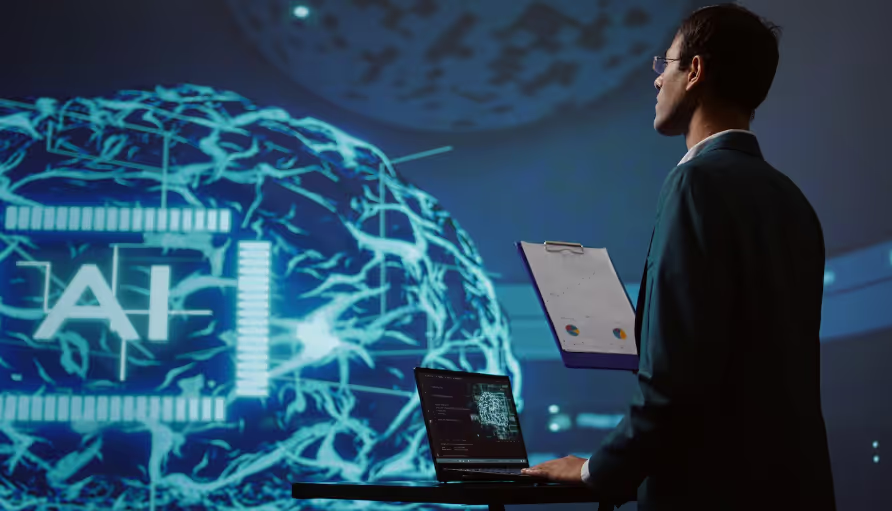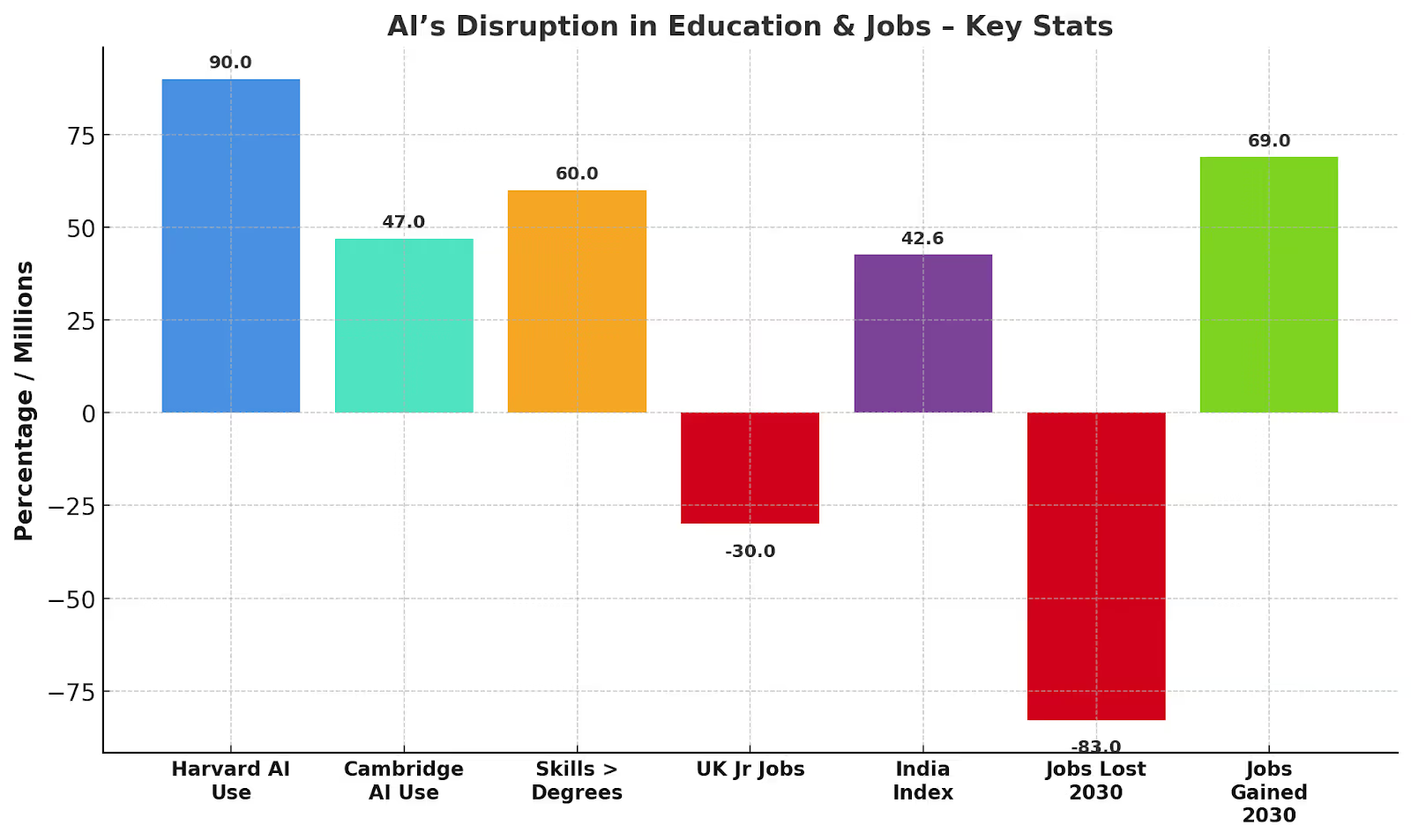Stay informed with our newsletter.
.webp)

.webp)

AI is quietly rewriting how we learn and work. In classrooms, up to 90% of students use generative tools, pushing universities to rethink assessment and teach AI literacy. In hiring, skills now trump degrees, bootcamps surge, and entry-level roles shrink, junior postings fell ~30%, while firms expect AI-ready recruits. Globally, India’s Graduate Skill Index slid to 42.6%; by 2030, 83M jobs may be displaced and 69M created. The antidote is relentless upskilling and adaptability for resilience.

Artificial intelligence isn’t just automating tasks, it’s quietly dismantling the very pillars of how we learn and how we work. While policymakers argue about regulation, classrooms and offices are already in the middle of a silent revolution. Education is grappling with authenticity, jobs are vanishing or transforming overnight, and for millions worldwide, the path from student to professional is being rewritten in real time.
At first, this looks like progress: AI as a tutor, editor, and study buddy. Students gain instant feedback, personalized help, and round-the-clock access to resources. For many, AI has become a great equalizer.
But teachers are raising alarms:
Some schools are fighting back with AI-resistant assessments (oral defenses, live presentations), while others embrace the wave, introducing AI literacy as a core competency for the future.
The labor market is shifting faster than universities can adapt. A 2025 job market analysis revealed that 60%+ of tech employers now prioritize skills over formal degrees.
The degree is no longer the ticket to opportunity. Demonstrable skills, proven projects, and AI fluency are becoming the new résumé currency.
This is perhaps the most brutal change: entry-level jobs are disappearing.
Tasks once done by interns, summarizing reports, drafting slides, or doing research are now done faster and cheaper by AI. Fresh graduates are expected to be “AI-augmented” from day one, but paradoxically, the stepping-stone jobs they need to get experience are vanishing.
The disruption isn’t evenly spread. Some regions are advancing; others are falling behind:
The half-life of skills is shrinking. IBM research shows that technical skills expire in just 2.5 years today (compared to 10 years a generation ago).
For individuals, the message is blunt: lifelong learning is no longer optional. To survive, you must keep updating, unlearning, and relearning.
Education and employment are both in crisis:
For students, success is no longer about grades, but about adaptability, creativity, and the ability to work with AI. For professionals, the future belongs to those who continuously sharpen skills and embrace AI as a collaborator, not a competitor.
But here’s the catch: not everyone will have equal access. Without inclusive upskilling programs, inequality will deepen, those with resources to learn AI will surge ahead, while others risk permanent exclusion from opportunity.
Education
Jobs & Skills
Global Impact
Upskilling Race

The old pipeline, study, graduate, apply, work - is broken.
We are entering a cycle of learn → apply → unlearn → relearn, repeated endlessly. Degrees are losing currency, entry-level roles are thinning out, and AI skills are becoming the new passport to opportunity.
In this world, staying relevant means staying adaptable, agile, and human, mastering what AI cannot replicate: critical reasoning, creativity, emotional intelligence, and ethical judgment.
For readers: The real question is not if AI will affect your career, it already has. The question is: How quickly can you adapt?
For questions or comments write to contactus@bostonbrandmedia.com
